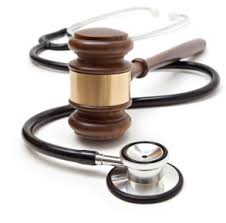
Jump To:
Alcohol withdrawal can be extremely dangerous and even deadly. Many people do not view quitting the regular, long-term use of alcohol as difficult or deadly as quitting other addictive drugs cold turkey, but it can be just as deadly — or even more so in some cases. It is important that all patients and their care providers take the dangers of alcohol withdrawal seriously.
Patients who are considering quitting alcohol should see a doctor for an assessment to ensure they are healthy enough to go through the process. For those who have a history of withdrawal, who have a long history of drinking, or who drink excessively, medical monitoring may be necessary.
Understanding Alcohol Withdrawal
Withdrawal occurs when someone stops drinking cold turkey, and their body tries to function without alcohol in the bloodstream. Alcohol withdrawal is a set of symptoms that may happen as a heavy drinker detoxes from alcohol.
They may begin within a day of having their last drink, and peak two to four days later. These symptoms occur because of alcohol dependence, a condition where the body becomes accustomed to having the alcohol and continuously needs more.
Possible Symptoms and Complications of Alcohol Withdrawal
The severity of alcohol withdrawal can vary depending on certain factors including how much and how long the person drank. The symptoms can range from relatively mild to severe. Some symptoms associated with alcohol withdrawal include:
- Irritability
- Anxiety
- Agitation
- Nausea and vomiting
- Increased heart rate
- High blood pressure
- Seizures
- Delirium tremens
Delirium tremens, sometimes called alcohol withdrawal delirium or DTs, is especially dangerous with a mortality rate of up to five percent. Medical support and monitoring are vital if you or a loved one experience delirium tremens. Symptoms of this complication include:
- Agitation
- Confusion
- Fever
- Hallucinations
- Seizures
You may be at a higher risk of developing DTs in certain circumstances. This includes:
- Have another medical illness or concern as well
- Using alcohol heavily daily
- A history of delirium tremens or seizures during withdrawal
- Abnormal liver function
- Initial severe withdrawal symptoms
- Advanced age
If you have any of these risk factors, it is imperative that you do not try to detox from alcohol without adequate medical supervision or care. Alcohol withdrawal can and does lead to brain injury and death in some cases.
Having the Proper Medical Supervision Can Lower Risks of Serious Complications
It is always a good idea to have a doctor evaluate your health before beginning any detox program, whether you intend to try it at home or in a facility. The doctor can examine your risk factors for withdrawal complications and recommend a supervised medical detox if necessary.
A supervised medical detox is a good idea for those at an increased risk for life-threatening withdrawal complications. In addition, when the detox occurs in a facility monitored by medical professionals, they can offer you medication to reduce the discomfort you experience.
Not all detox facilities are the same, however. It is important to choose a facility with:
- A doctor who oversees the program and checks in on patients regularly
- Around-the-clock support and care
- Regular monitoring by a medical professional
- A complete initial assessment conducted during admissions
- A plan for emergency medical care, if the need arises
If a detox facility does not have someone who comes to check your vital signs and evaluate you for serious complications several times a day, you could develop DTs, dehydration, or another serious complication without catching it until it is life-threatening.
Withdrawal Injuries and Deaths in a Detox Facility May Support a Medical Malpractice Claim
If you or a loved one went through alcohol withdrawal in a detox facility and suffered serious complications, the medical malpractice attorneys from Newsome | Melton want to review your case for free. Negligence on the part of the medical professionals in charge of monitoring and care can prevent patients from getting the prompt medical care they need.
If we discover careless, reckless, or negligent behavior led to your injuries or your loved one’s death, your family may be eligible to file a medical malpractice claim and pursue compensation. We may be able to help you recover damages that include:
- Medical treatment and care costs
- Ongoing and future care costs
- Lost wages, diminished earning capacity, or loss of future income
- Pain and suffering
- Mental anguish
- Out-of-pocket costs
- Wrongful death damages
Medical Negligence - News Articles

According to research conducted by John Hopkins University, 10 to 15 percent of the United States adult population have gallstone disease and around 800,000 operations are performed each year. The majority of patients suffering from gallstones do not require surgery, but the procedure is very common and statistically very safe. Billy Pierce, who is now
Read More
At the end of 2007, Marie Gabriel-Gelin found out that she was pregnant with her fourth child. Gabriel-Gelin, 36 at the time, and her doctors at South Shore Hospital in Weymouth, MA decided that a cesarean section was the best option for a safe delivery. However, during her pregnancy she became anemic, making a cesarean
Read More